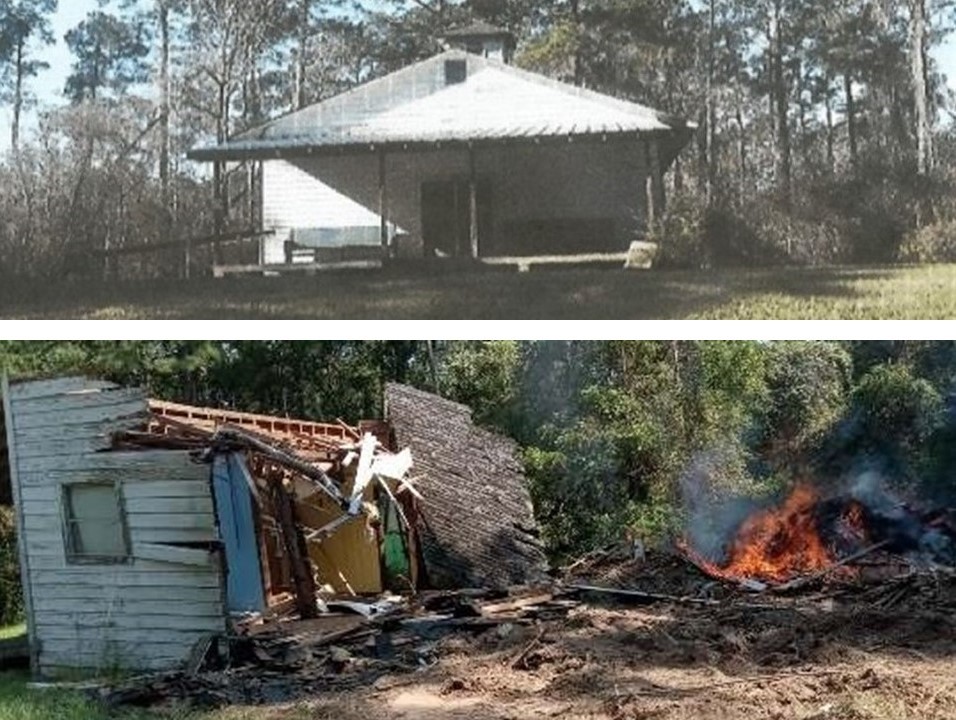In a 76-page book, Milton and Doris M. Davis chronicle the 147-year history of a Black church in Liberty County that was established in 1877 by former slaves.
Founded just eight years after the Civil War ended, Mt. Reah Missionary Baptist Church has remained in the same spot on CR 2116 off of SH 146 near Clark, Texas, in northern Liberty County.
Three cemeteries—Simmons, Beef Head, and Nixon Smith—were still located on the church’s grounds even after it closed in 2018. But as of 2024, Mt. Reah has passed away, at least physically. Furthermore, it is unlikely that the ancient church is at peace.
On September 17, 2023, activist and self-described disruptive historian Tanya Debose declared, “We celebrated the Mt. Reah Baptist Church and were going to work to try and save it.” Regretfully, the church was given to a group that chose to burn it down this year rather than preserve it through a sequence of quit claim deeds.
However, the deliberate burning down of Mount Reah seems to be just one more example of the misery of Texas Black history annihilation.
The descendants of Charlie Simmons, the original land giver for [Mt. Reah], are concerned that if the group is not stopped, it would further damage the region’s historical and cultural resources. According to Debose, the Black Heritage Association of Clark, Texas and the Simmons Family Descendants Association have partnered to introduce more constructive preservation initiatives to honor and promote the region.
It will be 150 years this December since Simmons bought the land that eventually became the home of a group of former slaves. It was a prosperous neighborhood with a Golden Spray school, Mt. Reah Church, and the still-existing Green Valley Masonic Lodge.
In the region, the Simmons family established over a dozen homesteads.
Respected man Charlie Simmons founded a civil rights meeting with others, founded the Domestic Homemaker Club for Negro Residents, and used the Masonic Lodge to help the community by providing food and other necessities. He also shared Debose’s mission to preserve the remaining Black history sites in the state, particularly in Liberty County.
The Davises, trustees of Mt. Reah Missionary Baptist Church, have collected the church’s history into a book that has been donated to Clark’s Sam Houston Regional Library and Research Center.
The Clark area includes Grand Cane, the site of Sam Houston’s former plantation. The contributions made by Sam Houston and his wife Martha Lea to the Clark neighborhood are commemorated by a Texas Republic marker. Charlie Simmons’ tale hasn’t been told, despite the fact that he might have been the initial catalyst for Black settlers’ arrival in the region.







